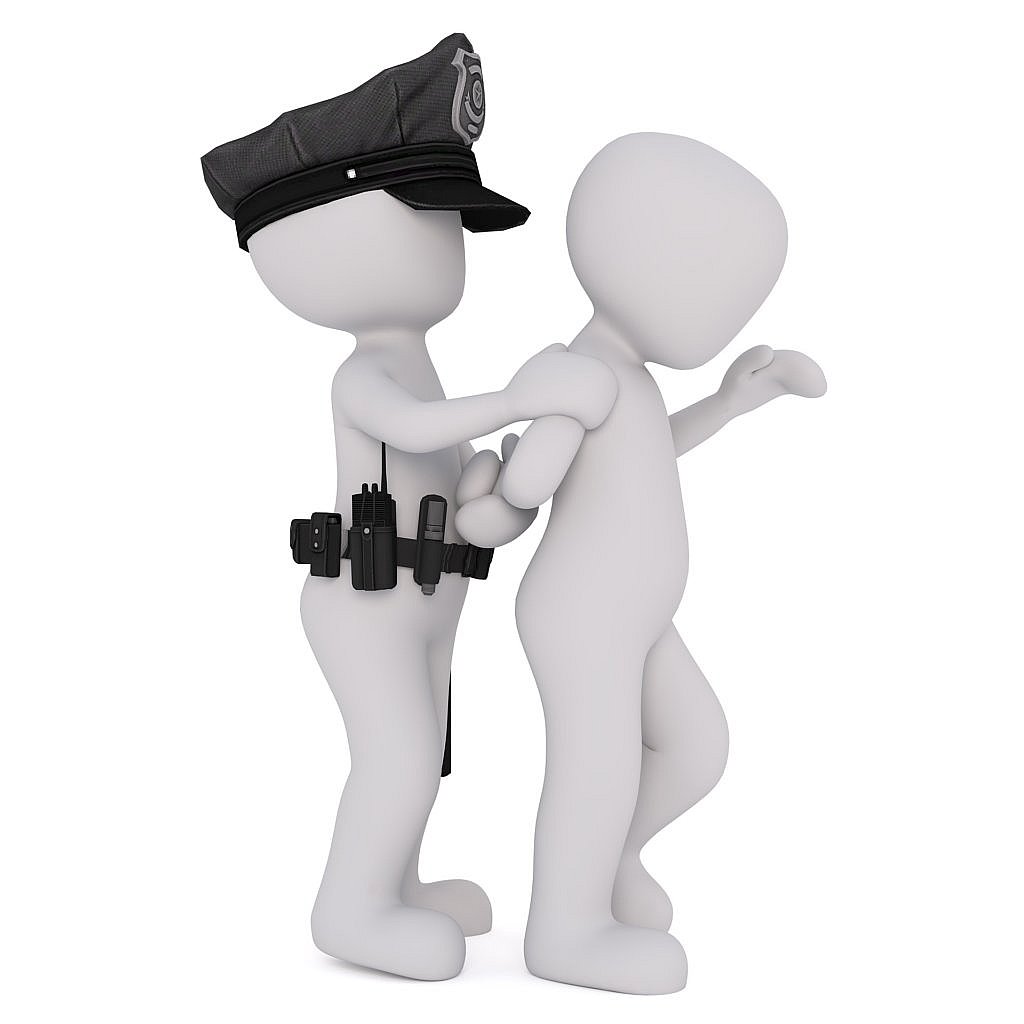
More and more, I’m seeing individuals charged with assault on law enforcement officer(assault on LEO) here in Northern Virginia. This happens most often when police investigate a suspect for an unrelated offense, and that suspect is not as polite as law enforcement would prefer. The problem is that assault on LEO is a serious felony charge and carries a stiff, mandatory punishment.
How does Virginia define “assault” on law enforcement?
In particular, Virginia Code Section 18.2-57(C) states:
…if any person commits an assault or assault and battery against another knowing or having reason to know that such other person is…a law-enforcement officer…such person is guilty of a Class 6 Felony, and upon conviction, the sentence of such person shall include a mandatory minimum term of confinement of six months…”
Wait, that Code Section doesn’t define “assault” or “assault and battery”?
You’re exactly right. The Virginia Code doesn’t define assault/assault and battery. In fact, you have to search Virginia cases to define it. Here’s (3) three scenarios where I read Virginia law to include an assault (or assault and battery):
1. You willfully touched the officer, without legal justification, in an angry, rude, or vengeful manner; or
2. You committed an “overt act” intended to harm the officer with the ability to do so; or
3. You committed an “overt act” meaning to place the officer in fear of harm and that person was placed in fear of harm.
These scenarios raise a couple of important points. You don’t have to injury an officer to be guilty. Rather, mere touching of the officer in an inappropriate way may be enough. That means a push, shove, slap, or grab can be considered an assault.
Additionally, you aren’t even required to have touched the officer if you had the intent to harm them (or place them in fear) when you took action. For instance, throwing an object towards an officer, and not actually having contact with them, may be enough. Therefore, the threshold for being convicted of assault on a law enforcement officer is lower that most believe.
Other situations I see where people are charged with assault on law enforcement.
Look, many of the times I see individuals who come into my office charged with assault on LEO, it’s really a matter of having angered the officer, which results in “over-charging” the individual. For instance, I see an individual charged with assault on LEO when he or she should have been charged with resisting arrest under Virginia Code Section 18.2-460 because he or she was fleeing or trying to escape from the officer. In fact, we’ve written about this before, which you can see here. When discussing your case with your attorney, you should discuss the specific mechanics of your interaction with the officer to determine if you were rightfully charged.
Wait, if I get convicted of assault on LEO, I get a felony AND have to serve at least six months jail?
Again, you’re exactly right. Assault on LEO is a Class 6 Felony and carries a mandatory sentence of six months to serve. That means you will serve every day of that six months if convicted. (And possibly more time if your sentence requires it). Therefore, if you’re charged, it goes without saying that you need an attorney.
What issues you need to consider about your assault on law enforcement charge.
As I stated above, I often times see assault on LEO wrongfully charged. However, because the threshold of what an “assault” in Virginia is so low, and sometimes innocent people get convicted, you’re going to be facing a difficult choice to make if you truly are innocent. Because, in certain instances, the prosecution will offer you a misdemeanor charge (and possibly jail time), which will avoid you being convicted of a felony and serving significant jail time. But you’ll be pleading guilty to a crime that you didn’t commit.
Therefore, before you talk to any attorney, you need to know that your case is serious, and you need be clear about your goals. And if you decide that you’re willing to risk it because you believe it’s the right thing to do, you’re going to want to make sure to hire an attorney who is ready and willing to go to trial on your case.
Conclusion.
For more information, feel free to give me a call with questions. For such a serious charge, you should not wait. You can contact us at 703.570.4180 for your Free Consultation. You can also learn about me, Owner James Abrenio, here.
